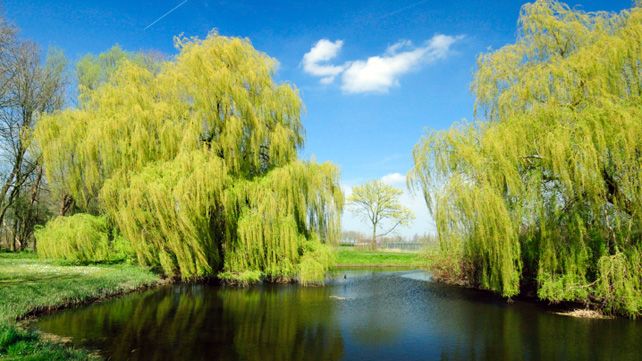BonsaiTreeAdmirer
Seedling
- Messages
- 15
- Reaction score
- 4
- USDA Zone
- 7B
Hello everybody.
Thanks for all of your help with my previous thread.
I just received my new cuttings today: 2 Dragon Willows, 2 "Hybrids" (it was labeled as such) and 2 Weeping willows. Just as before one of the hybrids had moldy spots on top where it was cut off so I quickly sawed off about an inch from the top of the trunk to get rid of it only to reveal a greenish hue? There's also a black spot on one of the dragons that I'm not sure what it could be. If someone could help me identify what it is, I'd greatly appreciate it.
According to some of you, I was recommended to plant the cuttings into bonsai soil immediately but I was wondering if there is something that I'm supposed to the bottom where I want the roots to grow.
I keep coming across some bonsai owners splitting the base of the trunk into 4 before either planting them in water or directly into soil and adding wire above where they split the trunk. I also came across some individuals who carve the outer edge of the bottom of the trunk before potting in soil. Others just seem to magically grow without anything being done. For those of you who have been successful, what have you done?
I currently potted one of the Weeping willows and one of the 'Hybrid' without doing anything above. Is that ok?
Thank you all for your continued help.
Thanks for all of your help with my previous thread.
I just received my new cuttings today: 2 Dragon Willows, 2 "Hybrids" (it was labeled as such) and 2 Weeping willows. Just as before one of the hybrids had moldy spots on top where it was cut off so I quickly sawed off about an inch from the top of the trunk to get rid of it only to reveal a greenish hue? There's also a black spot on one of the dragons that I'm not sure what it could be. If someone could help me identify what it is, I'd greatly appreciate it.
According to some of you, I was recommended to plant the cuttings into bonsai soil immediately but I was wondering if there is something that I'm supposed to the bottom where I want the roots to grow.
I keep coming across some bonsai owners splitting the base of the trunk into 4 before either planting them in water or directly into soil and adding wire above where they split the trunk. I also came across some individuals who carve the outer edge of the bottom of the trunk before potting in soil. Others just seem to magically grow without anything being done. For those of you who have been successful, what have you done?
I currently potted one of the Weeping willows and one of the 'Hybrid' without doing anything above. Is that ok?
Thank you all for your continued help.



